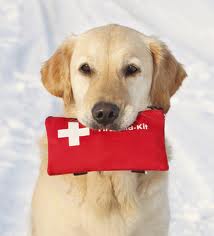Vaccination Requirements
 Adult Dogs and Puppies
Adult Dogs and Puppies
Why do we require these and what are these diseases?
Vaccinations must be administered by a veterinarian and remain current throughout class.
- Bordetella (aka “kennel cough”) – required for dogs 8 weeks and older. Must be given at least 10 days before start of class.
- Distemper, Adenovirus, Parvovirus (aka “DHPP”)- required for dogs 8 weeks and older. The 1st vaccination in series must given at least 10 days prior to class for puppies under 16 weeks. Puppies must remain current at 3 week intervals.
- Rabies – required for dogs 16 weeks and older.
Proof of vaccinations must be provided 48 hours (2 business days) prior to starting your dog in class. You can provide proof of your dog’s vaccinations in one of these 2 ways:
- Email a photo (jpg) or file copy of your dog’s records to office@gsltc.org (preferred method).
Ensure your name and your dog’s name are clearly identified on the records. - Call, text, or email our office with your dog’s veterinarian information so we can confirm the information directly with your veterinarian. Ph 314-832-3647
If we do not receive confirmation of your dog’s vaccinations prior to your start date, you will not be able to begin class.
If you don’t follow a traditional vaccination schedule, please provide a letter from your veterinarian indicating the reason for the non-traditional vaccination schedule (previous reaction, titers, etc.).
Vaccination Requirements for Humans: None.
- As of 4/17/2023, GSLTC no longer requires students or trainers to be vaccinated for Covid-19.
- Masks are welcome, but optional.
Missed Class Policy
For the consistency of your dog’s training and our ability to monitor our class size, we are not able to accommodate make-up sessions if you have to miss a class. We will deduct 1 training session from your pass if you have to miss class.
Vaccination Requirement Details – Why We Require these immunizations
Adult Dogs and Puppies
GSLTC requires vaccination against rabies, DHPP (4 way or 5 way) and Bordetella. Vaccinations must be administered by a veterinarian and remain current throughout class.
- Rabies
Rabies is a viral disease that affects all warm blooded mammals, including dogs and people. Once symptoms of rabies occur, the disease is universally fatal. All adult dogs and puppies over 16 weeks of age - Distemper
Canine distemper is a highly contagious disease that affects many organ systems and can be fatal or cause permanent disability. Part of the 4 way and 5 way vaccines. Generally first administered between 6 and 8 weeks of age, then every 3 weeks until 16 weeks of age - Canine Infectious Hepatitis
Canine distemper is a highly contagious disease that affects many organ systems and can be fatal or cause permanent disability. Part of the 4 way and 5 way vaccines. Generally first administered between 6 and 8 weeks of age, then every 3 weeks until 16 weeks of age. - Parvovirus
Canine parvovirus is a highly contagious virus that spreads through contact with contaminated fecal material. It can cause severe vomiting and diarrhea and in many cases sepsis and can be especially fatal in puppies. Part of the 4 way and 5 way vaccines. Generally first administered between 6 and 8 weeks of age, then every 3 weeks until 16 weeks of age. - Canine Respiratory Disease
Canine respiratory diseases include canine adenovirus type 2 (controlled by vaccination against type one), parainfluenza virus (a separate and different virus than canine influenza), and Bordetella bronchiseptica ( a highly contagious bacterial infection). All these agents can cause airway inflammation resulting in cough, sometimes fever and occasionally complications such as pneumonia, especially in very young puppies and older dogs with other health issues. Para influenza and adenovirus are included in “4-way” and “5-way” vaccines. and generally first administered between 6 and 8 weeks of age, then every 3 weeks until 16 weeks of age. Protection from bordetella is afforded by a separate single dose vaccine. There are number of other less common respiratory diseases against which we have no vaccinations. Dual infections with any of these pathogens as well as with one of the above could be especially severe.
